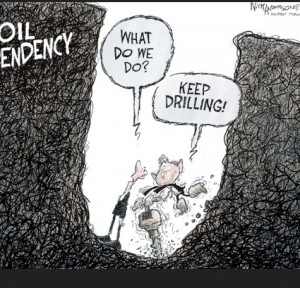This is the first time a US president will be visiting India twice. Why is Obama placing such importance on India, and what does he expect from a country that was formerly in the Soviet camp and has disappointed so many, despite decades of “liberalization”?
Major bilateral issues are part of the trip’s agenda. Defense, energy and counterterrorism are the main course for the talks, but President Obama’s top concern is deepening economic ties with India. The visit comes at a particularly fortuitous time. Both the US and India are on promising growth curves. It is entirely possible that Obama’s visit could mark the beginning of the most vigorous US-India economic cooperation since the beginning of the liberalization process nearly a quarter century ago.
Obama’s visit can potentially help right US-India economic relations and send a clear signal to American businesses that India can be a serious, stable place to grow.
1) Tax
There is wide agreement that the Indian government’s decision to contemptuously disregard a Supreme Court decision and overturn 50 years of settled Indian law to implement retrospective taxation on certain types of major business transactions has derailed Indian economic growth and given the country a notorious reputation in investment circles. Although it was the Congress-led government that decided to overturn a court’s decision and tax past offshore M&A (mergers and acquisitions) transactions, the Modi government has done little substantively to reverse that decision, despite carefully worded promises that it would not undertake any new cases based on retroactive tax laws.
While there are signs that India and the United States will sign a significant agreement to resolve certain other types of tax cases, the Indians must understand there are no half measures for repealing a tax that marked the Indian tax regime as untrustworthy and out-of-step with modern practice.
Obama’s second priority will be to persuade India to change its inflexible and archaic labor laws.
Obama’s third priority will be to seek a reduction to India’s infamous red tape. While some “single-window” clearance systems have been implemented with fanfare, anyone who has to deal with Indian bureaucracy still has to run from pillar to post. Many promising areas of growth have ground to a halt on mistaken bureaucratic action or complete inaction.
More importantly, even a “yes” in India infamously means “maybe” rather than an unequivocal “yes,” and this ruffles American feathers.
Modi has made very public efforts to make the bureaucracy work better or, simply, to show up for work.
One testy issue that doesn’t matter a whole lot is intellectual property (IP). This is a hot-button issue in both countries, but it is almost exclusively focused on pharmaceutical patents.
India has valid concerns about providing up-to-date medicines to its impoverished population at affordable prices, but it also needs to encourage domestic innovators who are being lured abroad by countries such as Singapore. The United States has valid concerns about enforcement of IP rights, but its bargaining position must not be held hostage by the large pharmaceutical companies. The US must recognize that compared to China, India is a virgin when it comes to IP violations. The courts will enforce foreign IP holders’ rights on a timely basis, and there is little “home cooking” when it comes to such decisions. IP holders in China would love to face the comparably minor challenges one meets in India.
There is a rational way forward here, one that allows India to impose rational and just price controls on drugs while allowing a vigorous IP regime that encourages innovation in the country. India requires fresh ideas and economic thinking on this issue rather than framing this as either a leftist defense of the poor or a craven collapse to outside business interests. For its part, the United States should help India find a balance and not let the pharmaceutical lobby dominate the discussion. The best selling point for “Make in India” is that the country will not rip off American intellectual property in the manner of China.
Prime Minister Modi deserves great credit for looking at India’s greater interests and reaching out to a country that only recently had him on a blacklist and barred from entry. President Obama has a great chance to reciprocate the gesture. Both leaders have a rare opportunity to help each other unlock India’s economic potential.











